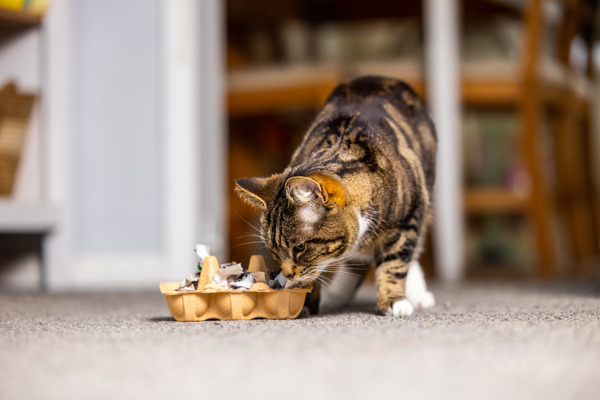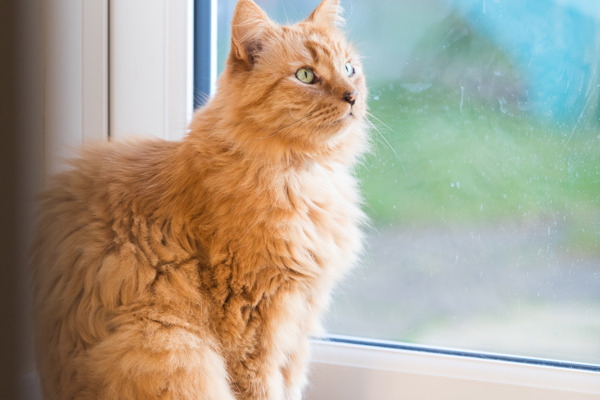Activities you can do with your cat to keep them happy indoors
Cats love to explore. Most cats will usually prefer outdoor access so they can enjoy all the sights, sounds and smells the natural world has to offer.
But in the UK, 37% of cats are kept indoors. It’s important to offer these indoor-only cats plenty of enrichment. This will allow them to exhibit their natural cat behaviours and prevent boredom and frustration.
Not only will this keep indoor cats happy, but it will also help form a strong bond between you and your indoor cat.
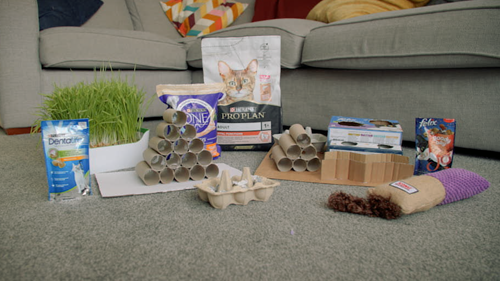
That's why we've partnered with our long-standing partner Purina, to help shine a light on the importance of enrichment. Find more details about the Purina campaign and other tips and advice on keeping indoor cats happy.
How to bond with an indoor cat
1. Play
When outdoors, cats have the opportunity to express their natural hunting behaviour. They can stalk, chase and pounce on any prey they can find. If they are kept indoors, they will still need plenty of opportunity to hunt. This can be replicated with cat toys, like fishing rods and puzzle feeders. Have regular play sessions with them throughout each day. A few minutes at a time will do. Encourage them to pounce on cat toys. Try placing some of their dry cat food in puzzle feeders so they can hunt it out. Play releases ‘feel good’ hormones in cats’ brains. If you play together they’ll start to associate those happy feelings with spending time with you. Find out more about cats and play.
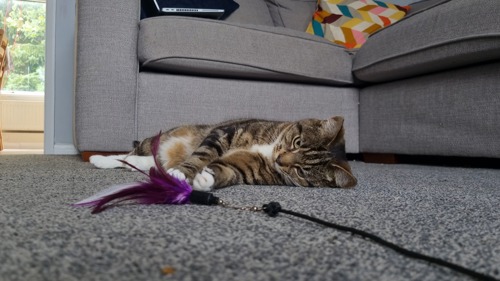
2. Grooming
Cats are usually quite good at grooming themselves. But they sometimes need a little help every so often, especially if they are long-haired. If they’re comfortable with it, try gently brushing their fur with a cat grooming brush. This will help to remove any excess fur. It can be lovely and relaxing for both you and your cat, and is a great way to bond with them. Find out more about grooming your cat.
3. Training
Most people know that dogs can be trained, but did you know cats can be too? Using positive reinforcement, you can train your cat to do all sorts of tricks. Training is a fun way to build a bond between you. Find our guides on training them to use the litter tray and cat flap and teaching them how to sit, roll over and respond to their name,
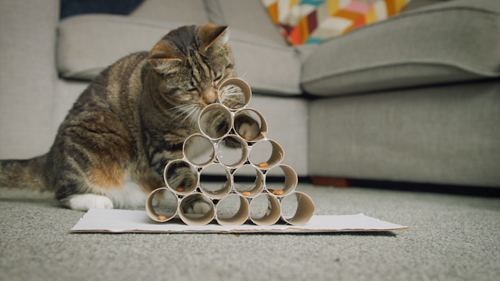
4. Appropriate petting
The urge to pick up and cuddle your cat at every opportunity can be hard to resist. But cats much prefer interaction on their own terms. Waiting for your cat to approach you before giving them a fuss will help them learn to trust you. Try getting on their level and holding your hand out to them to see if they come forward to sniff and rub against it. If they roll onto their back, avoid the temptation to rub their belly, as most cats don’t enjoy this.
5. Create a routine
Cats love routine, as they feel calmer and safer if they know what to expect at all times. Try to establish a daily routine for feeding, playing and petting. This will avoid any unwanted surprises for your cat, help you to remember their daily cat care tasks and ensure you spend some quality time together. If you need to adjust their routine, do this gradually over a period of a few weeks to help your cat adjust.
6. Give them space
Even happy cats will feel scared or stressed from time to time. When they feel this way they will most likely want to be alone and hide. Make sure you give them plenty of quiet hiding places that they can retreat to if they’re feeling vulnerable. Cardboard boxes are ideal. Don’t disturb them while they’re hiding, as this could damage the trust between you. Allow them to come out in their own time. Find out more about cats and hiding.
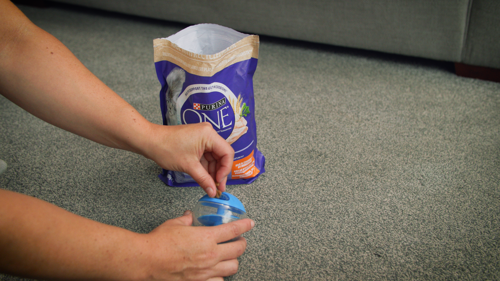
Find more advice about indoor cats.
For more ways to learn about play and feeding enrichment for indoor cats check out our work with Purina, helping to keep happy cats in happy homes.

